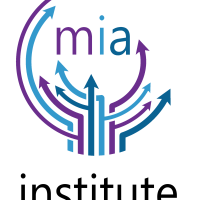The Miami Inclusion Alliance (23-05)

By: Sharon Langer Esq.
Last month was Sexual Assault Month, and I wrote about the efforts being made to recognize its impact on victims with disabilities.
While doing my research, I came across an article by Dr. Betsy Kanarowski, Ph.D.L.C.S.W. on the Sexual Assault of Children with Disabilities. She has spent 20 years in the field and shares her insight on this important and troubling topic. The whole article can be read here.
This month, I want to share a brief overview of her findings because I believe few of us have considered the unique needs of these child victims.
There are still many myths that surround children with disabilities. Sometimes you hear, “No one would hurt a child with a disability” or “It is not appropriate to talk to kids with disabilities about sexuality. They can’t understand and it will put ideas in their head”.
These myths are not supported by the statistics that are alarming:
- Children with disabilities are 3 times more likely to be victims of sexual abuse.
- Children with multiple disabilities are even more vulnerable.
- Well over half of women with developmental disabilities are survivors of sexual assault.
Here are some of the reasons those numbers are so high:
- Children with disabilities often need help with personal care and rarely have the right to refuse that care.
- They may have the desire to fit in and be like others, making them more vulnerable.
- There may be the inability to report abuse because of communication limitations.
- There is still a lack of education about healthy sexuality, sexual abuse and how to get help for these children.
There are solutions that have proven to work, but parents, caregivers, and those that interface with these children must be proactive.
They must understand the signs of abuse and trauma. These can be the same in children with or without disabilities.
- Teach boundaries and what is a safe touch and how to say no.
- Teach developmentally appropriate sexual development.
- Give children a vocabulary of words to report abuse.
- Be aware of any changes in behavior and don’t assume it is disability related.
- If sexual abuse does happen, report it and get help.
I believe we must bring this issue into the open and develop a robust system of care for children with disabilities who have been abused.
We must train all of those who may interface with children with disabilities on this topic and give them the resources they need to recognize abuse and stop it.
We have work to do, and I hope to continue to keep you informed on this important topic.













